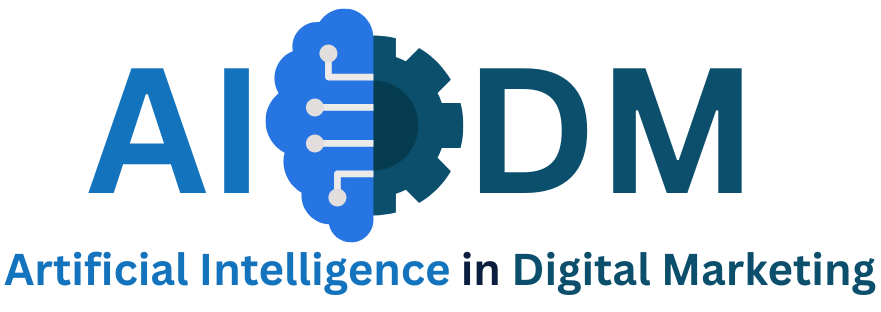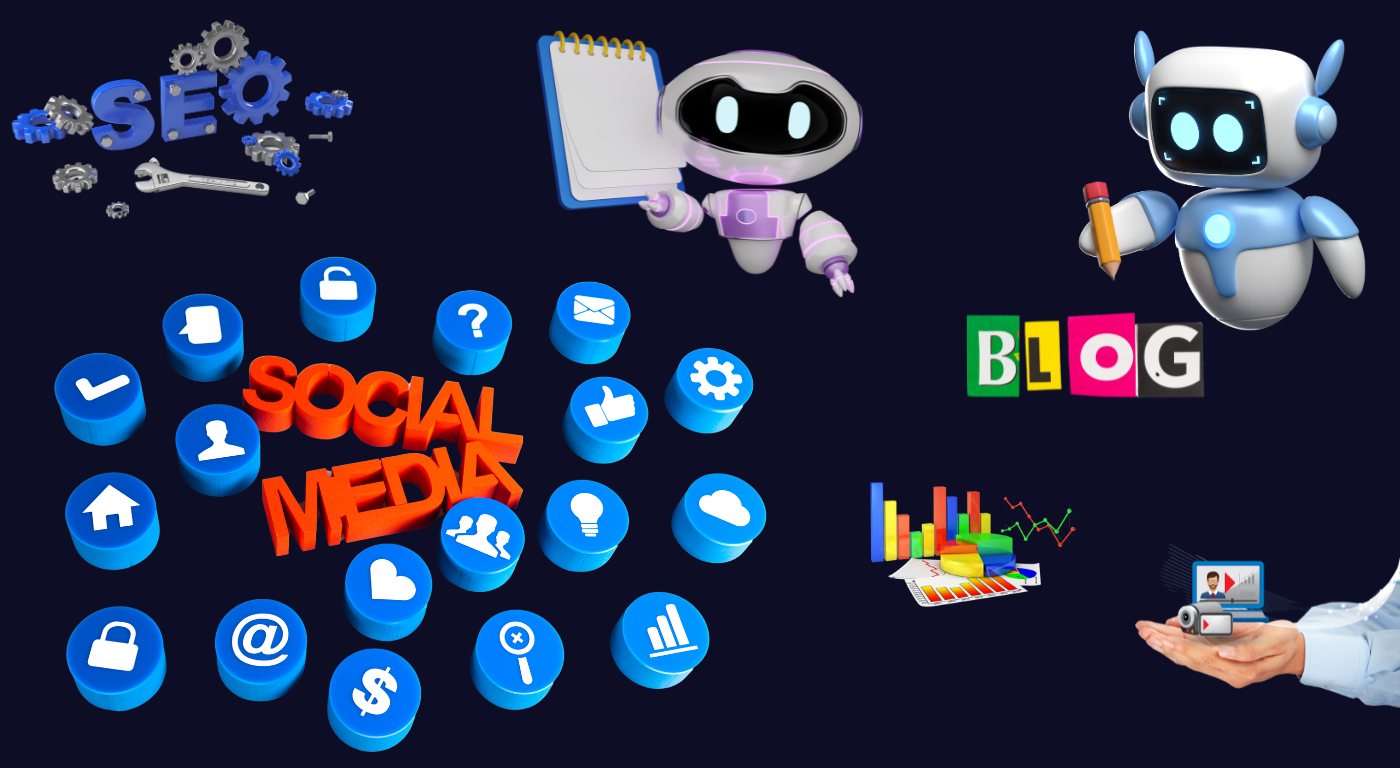The digital landscape has undergone a significant transformation with the rise of artificial intelligence in content creation. Businesses and content creators are increasingly utilizing AI-driven strategies for content creation to enhance their output, improve efficiency, and maintain competitive advantages in saturated markets.
What Are AI-Driven Content Creation Strategies?
AI-driven content creation strategies involves, organized use of artificial intelligence tools and technologies to plan, generate, optimize, and distribute content across various digital platforms. These strategies combine human creativity with machine learning capabilities to produce high-quality content at scale while maintaining brand consistency and audience engagement.
Modern AI content creation extends beyond simple text generation. It includes video production, image creation, social media management, SEO optimization, and personalized content delivery systems that adjust to user preferences and behaviors.
Industry Market Insights and Growth Projections
The AI content creation sector is experiencing remarkable growth, with market forecasts indicating significant expansion in the upcoming years. The global AI Powered Content Creation market size is anticipated to reach $7.74 billion by 2029 at 21.6%, while the global generative AI in content creation market size was estimated at USD 14.84 billion in 2024 and is expected to grow at a CAGR of 32.5% from 2025 to 2030.
This rapid growth reflects the rising adoption of AI tools across various industries, driven by the need for scalable content production and improved marketing efficiency. Industry experts highlights AI-powered personalization (35.2%) and content creation & optimization (24.8%) as the most significant AI-driven trends, emphasizing the strategic transition towards data-driven engagement strategies.
The Evolution of Content Creation Through AI
Traditional content creation was largely dependent on manual processes, thorough research, and time-intensive production cycles. The introduction of AI has transformed this approach by automating repetitive tasks, offering data-driven insights, and enabling real-time content optimization.
Initially, AI content tools were mainly focused primarily on grammar checking and basic text suggestions. Today’s sophisticated systems can understand context, preserve brand voice, generate multimedia content, and even forecast trending topics before they gain popularity.
Core AI Content Creation Strategies
1. Automated Content Generation
Automated content generation is the foundation of most AI-driven strategies. This method employs natural language processing models to produce various types of content, including blog posts, product descriptions, email campaigns, and social media updates.
Successful implementation requires careful prompt engineering, integration of brand guidelines, and human oversight to ensure quality and authenticity. Many organizations utilize AI to create first drafts, which human editors then refine and enhance.
2. Personalization at Scale
AI enables unprecedented levels of content personalization by analyzing user data, behavioral patterns, and preferences. This strategy involves creating dynamic content that adjusts to individual users or specific audience segments.
As highlighted by content marketing experts, “One of the strongest advantages AI offers is the ability to analyze customer data quickly and thoroughly, enabling hyper-personalized content. By processing extensive amounts of data, AI can identify audience preferences and content types that resonate best with different segments.”
Personalization strategies include customized email marketing campaigns, targeted social media content, and adaptive website experiences that evolve based on visitor characteristics and browsing history. Industry experts anticipate that AI will almost take on the role of an email marketing assistant, handling brainstorming, information gathering, composing email copy, analyzing email metrics, and managing processes that consume valuable human time.
3. Content Optimization and SEO Enhancement
AI-powered SEO tools analyze search trends, competitor content, and ranking factors to optimize content for maximum visibility. These systems can suggest keyword improvements, meta descriptions, and structural changes that boost search engine performance.
Advanced AI SEO strategies include semantic analysis, featured snippet optimization, and preparation for voice search. These tools continuously monitor performance metrics and suggest real-time improvements.
4.Multi-Channel Content Distribution
AI-driven distribution strategies ensure content reaches the right audience on the most effective platforms. These systems assess engagement patterns, ideal posting times, and platform-specific requirements to maximize reach and effectiveness.
Smart distribution includes automated social media scheduling, cross-platform content adaptation, and audience segmentation for targeted messaging across various channels.
Expert Perspectives on AI Context Creation
Industry Leader Insights
Content marketing professionals and industry leaders are increasingly recognizing AI’s transformative capabilities. According to Angélica Consiglio, CEO of Planin Comunicação, “2025 will be a year in which we in the PR industry will not only work more efficiently thanks to AI, but also with higher quality. From AI-powered real-time analysis for strategic planning to automated and customized content creation.
Marketing technology experts emphasize that AI transformation will significantly impact data analysis, content optimization, and decision-making processes. As one industry expert notes, “2025 will be a breakthrough year for dynamic creative optimization as generative AI finally unlocks its full potential.”
Content Marketing Institute Predictions
Leading content marketing authorities predict that “In 2025, AI will play an increasingly vital role across all content marketing stages, from creation to performance analysis. As brands explore AI tools and vendors integrate more AI-powered features, marketers will continually assess how to integrate AI effectively into their workflows.”
The benefits are already proving transformative, with Adobe’s research indicating that AI initiatives are “accelerating revenue growth, boosting productivity, and enabling more efficient content creation.” However, experts emphasize that establishing clear ROI metrics is critical for scaling these initiatives and requires fostering data unity and strong cross-departmental collaboration.
Benefits of AI-Driven Content Creation
AI significantly minimizes the time required for content creation tasks. What previously took hours can now be accomplished in minutes, enabling content teams to concentrate on strategy, creativity, and relationship building instead of repetitive production tasks.
Teams using AI content strategies report productivity increases of 200-400% in content output while maintaining or improving quality standards.
Improved Consistency and Brand Voice
AI systems can be trained to maintain consistent brand voice, tone, and messaging across all content pieces. This ensures brand coherence, no matter who creates the content or which platform it appears on.
Consistency extends to visual elements as well, with AI tools capable of generating images, graphics, and videos that align with established brand guidelines.
Data-Driven Content Decisions
AI offers deep insights into content performance, audience preferences, and market trends. These analytics enable more informed content strategies based on actual data rather than assumptions or instincts.
Predictive analytics help identify content opportunities ahead of competitors, allowing brands to capitalize on emerging trends and topics.
Cost-Effective Scaling
AI content creation strategies dramatically reduce per-unit content costs while allowing unlimited scaling. Organizations can generate more content with fewer resources, making comprehensive content marketing accessible to businesses of all sizes.
Implementation Best Practices
Define Clear Objectives and KPIs
Successful AI content strategies begin with well-defined objectives and measurable key performance indicators (KPI’s). Organizations should identify specific goals such as increased website traffic, enhanced engagement rates, or improved conversion metrics.
Establishing baseline measurements before AI implementation allows for accurate assessment of strategy effectiveness and return on investment.
Choose the Right AI Tools and Platforms
The AI content creation landscape includes numerous tools with different strengths and capabilities. Organizations should evaluate options based on their specific needs, budget constraints, and integration requirements.
Popular categories include writing assistants, image generators, video creation tools, social media management systems, and comprehensive content management platforms that integrate multiple AI functionalities.
Maintain Human Oversight and Quality Control
Although AI can automate numerous content creation tasks, human supervision remains essential for maintaining quality, authenticity, and brand consistency. Successful strategies establish well-defined review processes and quality checkpoints.
Human editors should focus on strategic thinking, creativity, fact-checking, and ensuring content resonates with target audiences on an emotional level.
Integrate AI with Existing Workflows
Successful AI content strategies seamlessly integrate with existing content creation workflows instead of replacing them entirely. This gradual approach minimizes disruption while enhancing adoption and effectiveness.
Integration should include content management systems, publishing platforms, analytics tools, and collaboration software to form a unified content ecosystem.
Common Challenges and Solution
Content Quality and Authenticity Concerns
One primary challenge involves maintaining content quality and authenticity when using AI generation tools. Industry experts caution that “Over-reliance on AI can result in content that feels generic and lacks emotional depth. While AI can mimic human writing, it can’t capture the nuances of personal storytelling or the unique voice that resonates with audiences, risking a loss of authenticity.”
Solutions involve implementing robust review processes, training AI models on high-quality examples, and combining AI efficiency with human creativity. Organizations should establish clear quality standards and regularly audit AI-generated content to ensure it meets brand and audience expectations.
Technical Integration Complexities
Integrating AI tools with existing systems may pose technical difficulties. Success requires careful planning, adequate technical resources, and potentially working with AI specialists or consultants.
Starting with simple integrations and gradually expanding complexity helps organizations build expertise and confidence with AI content systems
Keeping Up with Rapid Technology Changes
The AI content landscape evolves rapidly, with new tools and capabilities emerging regularly. Organizations must stay informed about developments and be prepared to adjust their strategies accordingly.
Regular training, industry monitoring, and experimentation with new tools help maintain competitive advantages in AI-driven content creation.
Future Trends in AI Content Creation
Advanced Multimodal Content Generation
Future AI systems will seamlessly create content across various formats simultaneously, producing coordinated text, images, videos, and audio that work together cohesively. Industry experts predict that AI influencer’s will shift from novelty to a significant opportunity in 2025, with advancements in AI-generated personalities, hyper-personalized content, and synthetic media integrations.
This evolution will enable more immersive and engaging content experiences while further optimizing the creation process.
Real-Time Content Adaptation
AI will increasingly enable real-time content adaptation based on user interactions, environmental factors, and current events. This dynamic approach will create more relevant and timely content experiences, with AI agents gaining wider use to deliver better experiences and more insights for marketers.
Enhanced Emotional Intelligence
Developing AI systems will better understand and respond to emotional contexts, creating content that resonates more deeply with audiences and builds stronger connections. However, experts emphasize the continued importance of human oversight to maintain authenticity and emotional resonance.
Measuring Success in AI Content Strategies
Key Performance Indicators
Successful AI content strategies require comprehensive measurement systems that track both quantitative and qualitative metrics. Essential KPIs include content production volume, engagement rates, conversion metrics, and cost per piece.
Organizations should also monitor brand sentiment, content quality scores, and audience satisfaction to ensure AI-driven strategies maintain positive brand perception.
ROI Calculation Method
Calculating return on investment for AI content strategies involves comparing costs of AI tools, training, and implementation against measurable benefits such as increased traffic, leads, sales, and reduced labor costs.
Long-term ROI assessment should include improved brand awareness, customer loyalty, and competitive positioning achieved through consistent, high-quality content production.
Conclusion
AI-driven content creation strategies represent a fundamental shift in how organizations approach content marketing and communication. By combining artificial intelligence capabilities with human creativity and strategic thinking, businesses can achieve unprecedented levels of content production, personalization, and effectiveness.
Success in AI content creation requires careful planning, appropriate tool selection, and commitment to maintaining quality and authenticity. Organizations that embrace these strategies while addressing common challenges will gain significant competitive advantages in increasingly crowded digital markets.
The future of content creation lies in the intelligent integration of AI technologies with human expertise, creating more engaging, relevant, and effective content experiences for audiences worldwide. As AI capabilities continue to evolve, content creators who master these strategies will be best positioned to thrive in the digital economy.
By implementing comprehensive AI-driven content creation strategies, organizations can scale their content efforts, improve audience engagement, and achieve their marketing objectives more efficiently than ever before.

